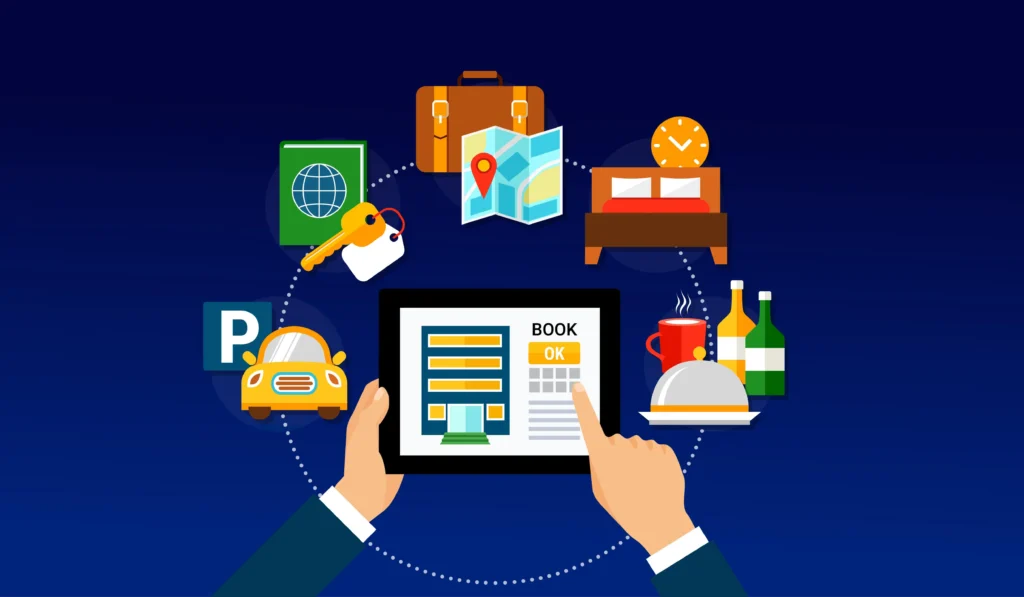The Changing Hospitality Landscape
The pace of change within the hospitality industry has accelerated in recent years. Hotels, resorts, and casinos now operate in a world where digital bookings, instant guest communication, and high expectations for personalization are standard. Businesses have found that navigating this evolving terrain requires tools to manage complexity without sacrificing quality. For organizations handling many transactions or compliance requirements, accounting software for casinos and comprehensive ERP platforms have become the backbone of efficient day-to-day operations.
The adoption of these solutions is more than a mere upgrade—it’s become fundamental to operational stability and growth. A report from Hospitality Net emphasizes that establishments using advanced systems see a measurable improvement in financial management, staff productivity, and guest satisfaction. These platforms centralize activities and create a unified digital environment, making it possible to scale services and manage teams more effectively.
Balancing Efficiency and Experience
Today’s guests want speedy, frictionless service and memorable, tailored experiences. This balance is a significant challenge for hospitality providers, especially when resources are limited, or guest counts fluctuate dramatically. ERPs play a vital role by automating check-ins, integrating with booking engines, and managing housekeeping schedules. When technology handles repetitive, administrative tasks, staff can invest more time in personalized guest interactions—like greeting regulars by name or accommodating special requests—creating moments that cultivate loyalty.
Data-Driven Insights for Smarter Decisions
Centralized data is a hallmark of an effective ERP system. Properties gain access to accurate, real-time analytics on everything from occupancy rates to guest preferences. With this insight, managers can forecast busy periods, spot underperforming services, and adjust staffing or marketing strategies on the fly. Actionable data takes the guesswork out of decision-making and leads to smarter resource allocation and improved profitability, all while aligning with the guest experience goals of the property.
Integrating Technology in Hospitality Services
Modern guests expect technology to enhance their hotel or casino stay at every touchpoint. ERPs seamlessly integrate multiple critical functions: finance, reservations, marketing campaigns, POS systems, and more, delivering a smooth and connected experience for staff and visitors. According to the Forbes Business Council, businesses adopting mobile check-in, digital payment, and automated guest feedback collection respond more effectively to today’s traveler habits. Across the property, teams get real-time alerts and updates, making collaboration easy and operational silos a thing of the past.
Overcoming Management Challenges
Unpredictability in hospitality is the norm, whether it’s a last-minute group booking, a shift in local regulations, or the sudden unavailability of key amenities. ERPs offer a buffer against chaos, centralizing all data so managers can quickly adapt. Alerts and dashboards keep track of inventory and compliance deadlines while reducing the likelihood of errors and miscommunication. With robust systems in place, properties improve responsiveness and keep standards consistent—even during the busiest seasons.
Real-World Innovations
Innovative hotels and casinos use ERPs as a launchpad for cutting-edge guest services and sustainability programs. AI-powered chatbots handle routine inquiries instantly, freeing staff for complex service needs. Others use integrated systems to monitor and reduce energy consumption, a move that resonates with environmentally conscious guests and regulators alike. Whether automating loyalty programs or managing vast entertainment calendars, ERPs have become the foundation for unique and value-added guest experiences.
Strategies for Improving Guest Satisfaction
Boosting guest satisfaction hinges on the coordinated efforts of staff, guided by real-time data and automated workflows. ERPs facilitate personalized emails, timely resolution of guest issues, and ensure amenities align with current demand. Staff training is also streamlined, as new team members can quickly learn standardized procedures through integrated documentation and digital tools, improving consistency and guest outcomes across departments.
Future Trends in Hospitality Management
Looking forward, hospitality operations will become even more dependent on digital platforms. The future points toward AI-driven personal recommendations, voice-controlled room functions, and advanced sustainability and revenue management analytics. Cloud-based ERPs, scalable for properties of all sizes, will offer even greater flexibility and security, helping businesses stay nimble in an ever-changing environment.
See Also: Venuecincinnati.com

